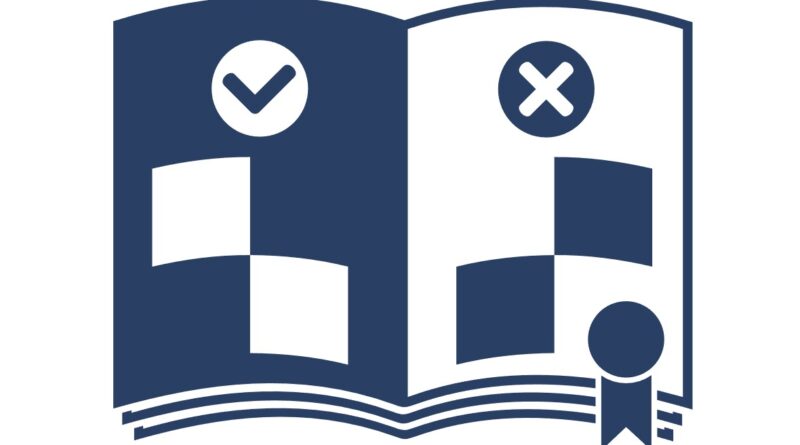Questions & Answers n. 1, January 2021 (Online chess)
January, 2021
Questions about FIDE Online Chess Regulations
by IA Stéphane Escafre, FIDE rules commission
At the end of 2020, took place the first FIDE World’s Youth Online Chess Championship. 1380 players from 114 federations participated, in girl and open section, from U10 to U18. The event was organized on Tornelo platform.
I was in charge of anti-cheating, with IA Alex Holowczak and Bojana Bejatovic (Fair Play Commission). 30 arbiters were involved in the event. IA Marco Biagioli was the Chief Arbiter. I took the opportunity of this championship to debrief with my colleagues the questions they were asking themselves, and the frequent questions asked by the players, parents and the captains.
We will discuss about arbiter’s questions on the next column. Let’s start with some questions from players, parents and captains. FIDE Online Regulations can be found here
- Can captains/delegates/coaches participate in the tournament as spectators and talk to the players?
Stéphane Escafre: Usually not. You can allow spectators. But art. 10.7 says “Spectators are not allowed to interfere in a game.” However, captains can be very useful, in youth events: it is difficult for the arbiters to cover all languages. So if you ask a 10-year-old player to change his camera location, he might not understand. Then the captain can translate. But during the game, the coaches or delegates do not intervene apart from these translation problems. Of course, they can speak (or chat) with the arbiter in case of complaints (see art. G.2.1).
This is not a rule, but it’s a good idea to configure the chat so that participants (players, officials) can only chat with the hosts (arbiters), and not with each other.
- Why do you ask for second cameras?
S.E.: The first camera is based on art. 8.1. The second camera is possible thanks to art. 14.4. The first camera is necessary to follow the eyes or head movements. The second camera is helpful to observe the room, and especially the desk, and the area in front of the player. If we watch a player constantly looking on the right side of the desk: the arbiter shall control this place. That’s why we need a camera in front of the player, and sometimes another one filming from behind.
- Why headphones are not allowed?
S.E.: Because of art. 9.7, we want to hear whatever you hear.
- Why my microphone must be on?
S.E.: Because if someone tells you “beware of the Rook!” we want to hear it.
- I am alone in room, but there are a lot of people in the house and it is noisy, can I mute my microphone?
S.E.: No… unless the arbiter asks this specifically. A player’s microphone must always transmit any sounds audible near the player to the Arbiter (art. 14.3). However, the noise that comes from a player can be heard by anyone, it can be disturbing. So, we apply articles 10.2.3 and 10.2.4, and then do two actions: either authorize a player to lower the sound of his speaker (but there is a risk that he will no longer hear the Arbiter’s instructions), or exceptionally, mute the noisy player’s microphone.
- Can I go to the toilet, during a game/5 minutes before a game?
S.E.: During a game a player may leave the playing area or the playing venue only with the permission of the arbiter. (art.9.5). It’s stricter than in classic games.
Note: Toilets are in the ‘playing venue’ not in the ‘playing area’ (art. 8.1)
– Can I play from a mobile/tablet/Chromebook?
S.E.: Usually not, as it is impossible – or rarely possible – to share the screen on those devices (see art. 12.1 or A.6.).
– Can players disconnect zoom or any Video Conferencing System (VCS) between rounds?
S.E.: It may be authorized to switch off the camera (art. 9.12 and A.5.), but each player is required to connect to the VCS at a time specified by the arbiter and remain connected during the entire session (art. 13.2).
– Can my mother bring me the dinner here while the game is in progress?
S.E.: No one except the player are allowed to be in the playing area without the permission of the Arbiter (art. 8.2). If the game is very long, there can be a refreshment area. But please avoid contact between players and other people, even a nice mommy.
– Can I help my daughter to setup her computer before the start of the game in order to play?
S.E.: Please, yes. (art. 8.2)
In case of Hybrid Chess Competitions (a new format where the games are played online, but the participants are physically present in a public place like a club, federation headquarters, hotel, etc.) the local arbiter is responsible for checking that all the playing devices are correctly set up. (art. Art. 16.7 & 18.5)
- Are Virtual Private Network (VPN) allowed?
S.E.: It is not strictly prohibited by FIDE regulation, but it may be blocked or no allowed in some countries. Furthermore, no application other than the one used to play, and a Video Conferencing System must be open on the player’s device during the session, unless allowed by the arbiter (art. 12.3 & 16.7).
– Why did my player lost the game? Only for error he/she pressed “resign”, he/she doesn’t speak English.
S.E.: Each player is responsible for familiarizing themselves with the playing zone’s features and functionality (art. 2.4).
Of course some arbiters are humans, and if you explain that it is unlikely a player “really” will to resign after the opponent has played 1.e4, or even before the first move: the human arbiter could restart the game according to art. 19.1 : “Each player is entitled to ask for an arbiter’s assistance. If a player calls the Arbiter in order to seek the arbiter’s assistance, the arbiter shall determine whether the player has a valid reason for doing so. If the player has no valid reason for doing so, he may be penalized in accordance with Article 18.4.”
But most of the time it’s just lost, because the players are supposed to know the rules. The game is won by the player whose opponent declares he/she resigns by pressing button “resign”. (art. 5.2)
– If I get disconnected from Zoom, Skype or any Video Conferencing System, can I continue playing?
S.E.: Certainly not. If a player disconnects from the VCS, but is still connected to the playing zone, then the player is forbidden from moving a piece on the chess board, until he reconnects to the VCS (art. 13.3). See also appendix I “Fair Play Rules for Online Competitions with Supervision”.
- What happens if a player disconnects? Can he come back and keep playing?
S.E.: There may be specific sanctions in the competition regulations. The general spirit of the law is as follows: the clock shall continue running, and if he can reconnect: he shall continue with the playing time remaining on his clock. See articles 11.1 to 11.5.
- I wanted to castle but my mouse just moved the king one square. Can you take back the move?
S.E.: No. It’s like in “over the board” chess. If you move the piece to the wrong square, it is your responsibility. We had this problem during the Olympiads for disabled people, where we used the assistance for blind players: the assistant made a move different than the one the player indicated. In this case the arbiter used wisely the “takeback button”.
See you next month for more questions about FIDE Rules.
Send your questions to stephane.escafre@fide.com
A special thanks to Salome Siradze (IA, Georgia), Gerhard Bertagnolli (IA, Italy), Sabrina de San Vicente (IA, Uruguay), Mehrdad Pahlevanzadeh (IA, Iran) and Tania Karali (IA, Greece)


